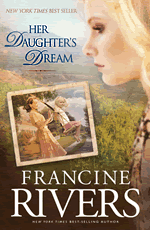Jeremiah Williams has been tending the gardens of the Tennessee governor's mansion for over twenty-five years. And like most first families who have come and gone, this one has stolen his heart.Mackenzie and her husband, Governor Gray London, have struggled for ten years to have a child and are now enjoying a sweet season of life—anticipating the coming reelection and sending their precious daughter, Maddie, off to kindergarten—when a tragedy tears their world apart. As the entire state mourns, Mackenzie falls into a grief that threatens to swallow her whole.Though his heart is also broken, Jeremiah realizes that his gift of gardening is about far more than pulling weeds and planting flowers. It's about tending hearts as well. As he uses the tools that have been placed in his hands, he gently begins to cultivate the hard soil of Mackenzie's heart, hoping to help her realize what it took him years to discover.
In The First Gardener, Denise Hildreth Jones brings the South to life as she explores the lives of her characters, most notably Governor London, his wife Mackenzie, gardener Jeremiah, and Mackenzie's mother Eugenia. Though I have not read any of Jones's other books, her strong suit seems to be character development. Each character in The First Gardener came alive in the roughly four hundred page book, and I felt attached to each one as the story progressed. (Jeremiah is my favorite, however.)
Mackenzie London, wife to Tennessee's governor, is a woman with many pent-up emotions about her difficulty in bearing children. After years of trying, her and her husband Gray were finally blessed with a precious daughter named Maddie. Now the couple are hoping for another baby, and the attempt is wearing on Mackenzie emotionally. It's an interesting aspect of the story, and key as the plot progresses. (This part of the story also makes for a few interesting passages as husband and wife discuss their trying to get pregnant. Nothing graphic, of course, but not for younger audiences, either.)
Eugenia Quinn, Mackenzie's mother, is a delightfully sarcastic woman who enjoys speaking her mind. Her group of friends—comprising of Berlyn, Dimples, and Sandra—reminded me of "Steel Magnolias" characters. They're quirky and sometimes too blunt, but they're love for each other runs deep. Eugenia's disdain for Jeremiah's gardening is especially humorous.
Jeremiah Williams is the loving, wise gardener at the governor's mansion. Some of the chapters are devoted entirely to his perspective on the goings-on at the mansion, and when I read anything he said I could easily picture Hoke from "Driving Miss Daisy." A key part of the story revolves around Jeremiah and his flowers; at different parts in the book he gives Mackenzie flowers that mean something important at that particular time. There's also some unknown part of Jeremiah's past that isn't revealed until the end; for me it was a big shocker. I wouldn't say he's the main character of the book, but, without his role, The First Gardener would miss something huge.
Those aren't the only characters, of course, but they were the ones that stood out to me the most. This is a really charming story with interweaving moments of sadness and joy. It is Christian fiction, and thankfully the Christian aspect isn't thrown in there at the end, or preached rudely; it is a perfect fit and an important part of the story. At the end of the book, Jones says that her prayer "is that in the seasons where you need a Jeremiah, you will find him. And in the seasons where someone needs you to be a Jeremiah, that you will be him." That, in essence, is what The First Gardener is all about.
Eugenia Quinn, Mackenzie's mother, is a delightfully sarcastic woman who enjoys speaking her mind. Her group of friends—comprising of Berlyn, Dimples, and Sandra—reminded me of "Steel Magnolias" characters. They're quirky and sometimes too blunt, but they're love for each other runs deep. Eugenia's disdain for Jeremiah's gardening is especially humorous.
Jeremiah Williams is the loving, wise gardener at the governor's mansion. Some of the chapters are devoted entirely to his perspective on the goings-on at the mansion, and when I read anything he said I could easily picture Hoke from "Driving Miss Daisy." A key part of the story revolves around Jeremiah and his flowers; at different parts in the book he gives Mackenzie flowers that mean something important at that particular time. There's also some unknown part of Jeremiah's past that isn't revealed until the end; for me it was a big shocker. I wouldn't say he's the main character of the book, but, without his role, The First Gardener would miss something huge.
Those aren't the only characters, of course, but they were the ones that stood out to me the most. This is a really charming story with interweaving moments of sadness and joy. It is Christian fiction, and thankfully the Christian aspect isn't thrown in there at the end, or preached rudely; it is a perfect fit and an important part of the story. At the end of the book, Jones says that her prayer "is that in the seasons where you need a Jeremiah, you will find him. And in the seasons where someone needs you to be a Jeremiah, that you will be him." That, in essence, is what The First Gardener is all about.
The First Gardener is published by Tyndale House Publishers.
Tyndale kindly offered me a complimentary review copy of this book.




